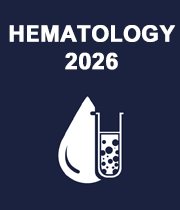Blood Diseases and Disorders
Blood diseases are conditions that affect the ability of the blood to function properly. There are several varieties, and the symptoms vary depending on the type. However, unexplained lethargy and weight loss are two common signs. Most blood problems reduce or interfere with the quantity of cells, proteins, platelets, or nutrients in the blood. The majority of blood problems are caused by abnormalities in certain gene sections that can be handed down across generations. Any of the three primary components of blood might be affected by blood diseases. Red blood cells transport oxygen throughout the body's tissues. Infection-fighting white blood cells. Platelets aid in the clotting of blood. Blood diseases can also affect the plasma, or liquid element of the blood. Blood disease treatments and prognoses differ depending on the type of blood condition and its severity. The study of blood in disease and health is known as haematology. The red blood cells, white blood cells, platelets, blood arteries, bone marrow, lymph nodes, spleen, and proteins involved in bleeding and clotting are all affected (hemostasis and thrombosis). A haematologist is a medical specialist who uses his or her specific knowledge to treat patients who have blood disorders.
• RBC disorders
• WBC disorders
• Platelet disorder
• Blood cancer
• Rare blood disorder
• Anaemia



Title : Acute intermittent porphyria: A neurological dilemma obscured by ubiquitous fgastrointestinal presentation
Mayank Anand Singh, Mimer Medical College, India
Title : Comprehensive symptom management and supportive nursing care in a preterm toddler undergoing HSCT for pyruvate kinase deficiency
Tran Thi Dung, Vinmec International Hospital, Vietnam